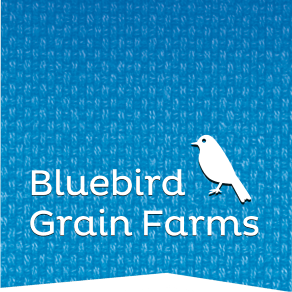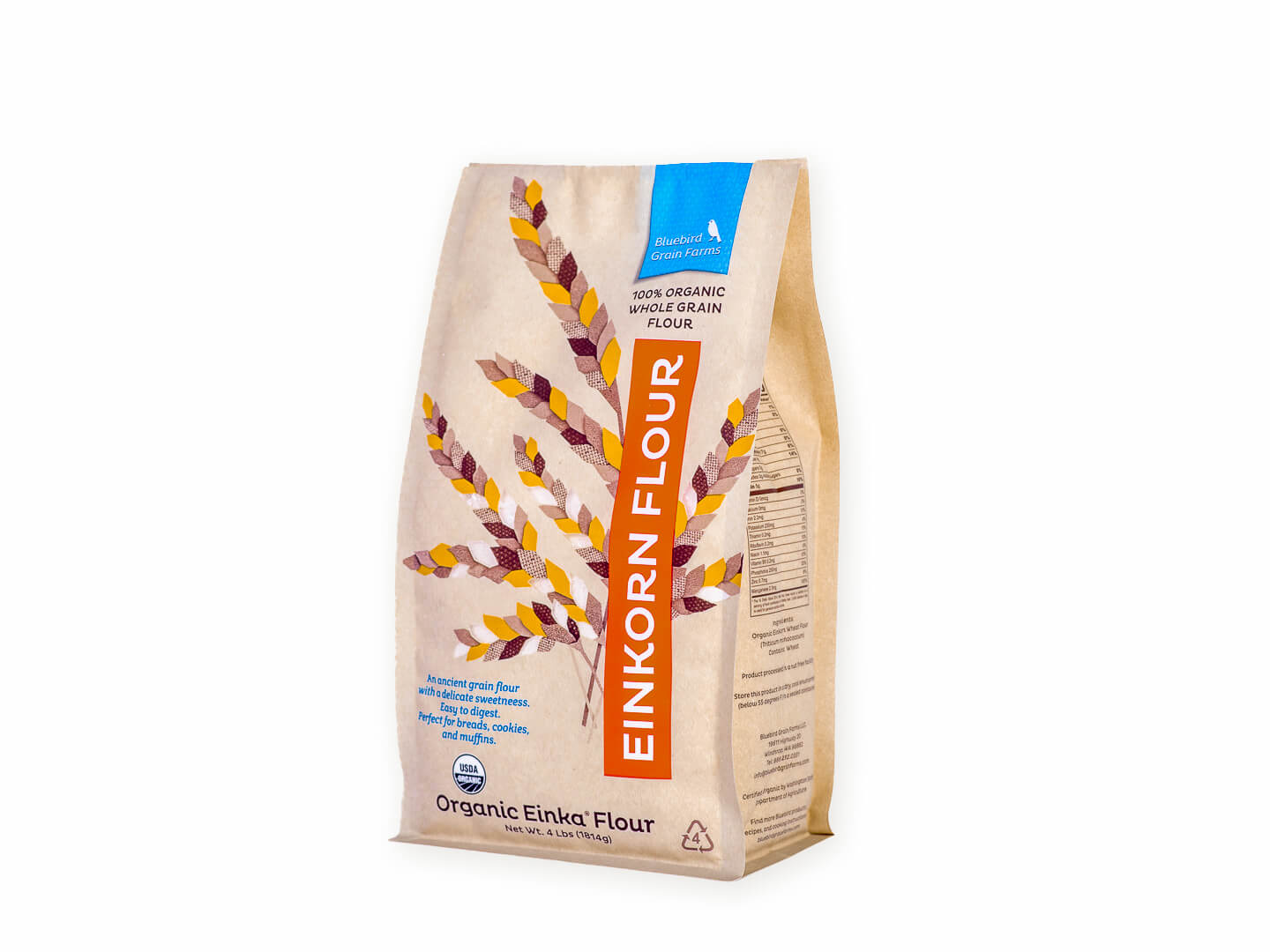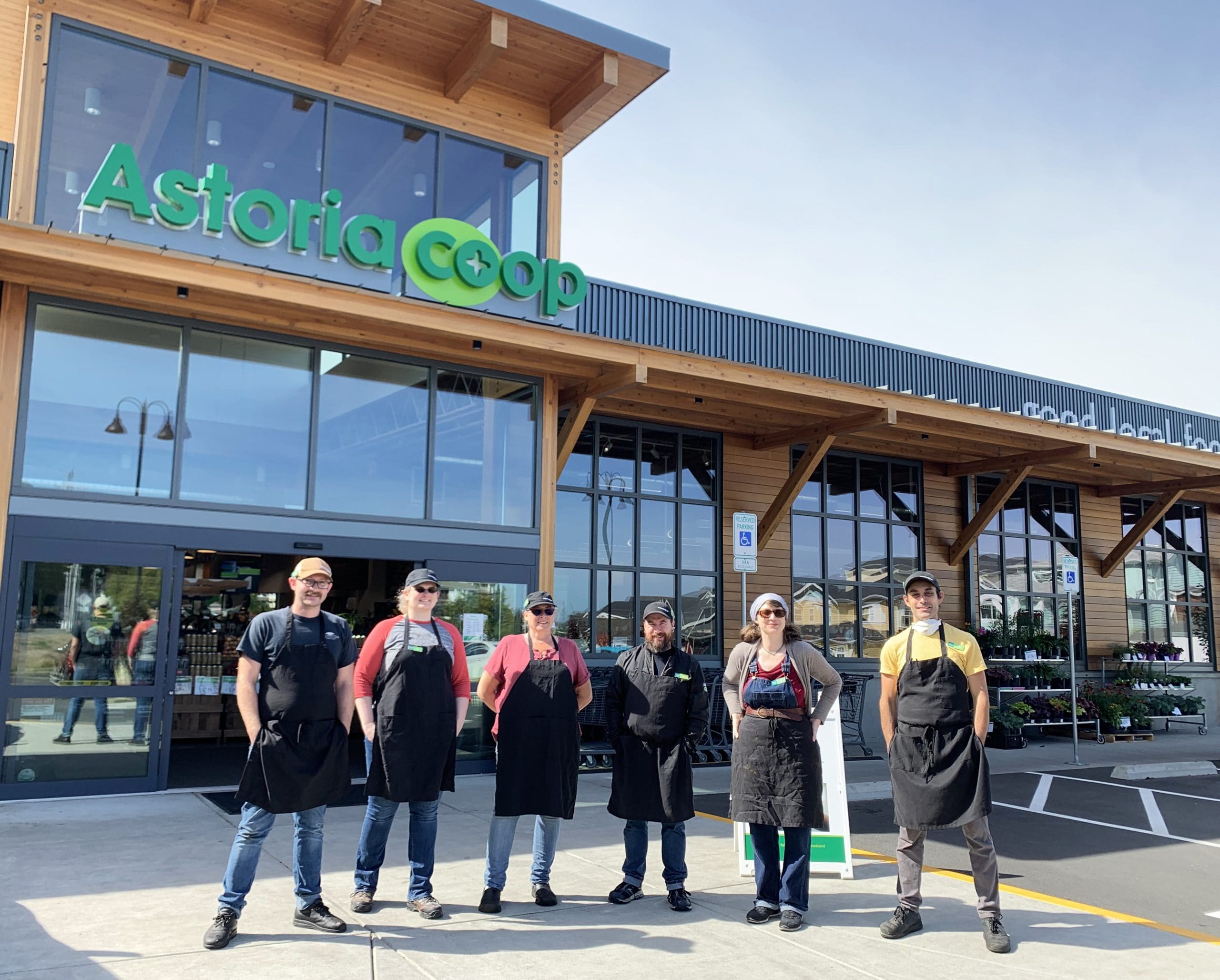
Ashley Lodato, Bluebird Grain Farms staff writer. Photos courtesy of Astoria Coop
As the dark days of late fall and winter descend upon the Pacific Northwest, the minds of professional and domestic cooks alike turn to foods that nourish, comfort, and bring cheer. And in times like these, those who are fortunate enough to live near Astoria, OR, can can get nearly all of their culinary requirements (as well as many of their morale boost needs!) met in one place: the Astoria Co-op.
A community-owned grocery store that is open to member-owners and non-members alike, the Astoria Co-op is committed to good local food. Or, as they phrase it, “good.local.food.” On a surface level as well as at its core, the Astoria Co-op sources and sells local and regional products it can stand behind with pride. You won’t find artificial sweeteners, trans-fats, or high fructose corn syrup on their shelves; their meats and dairy products are free of growth hormones and antibiotics. It’s all good, local food.
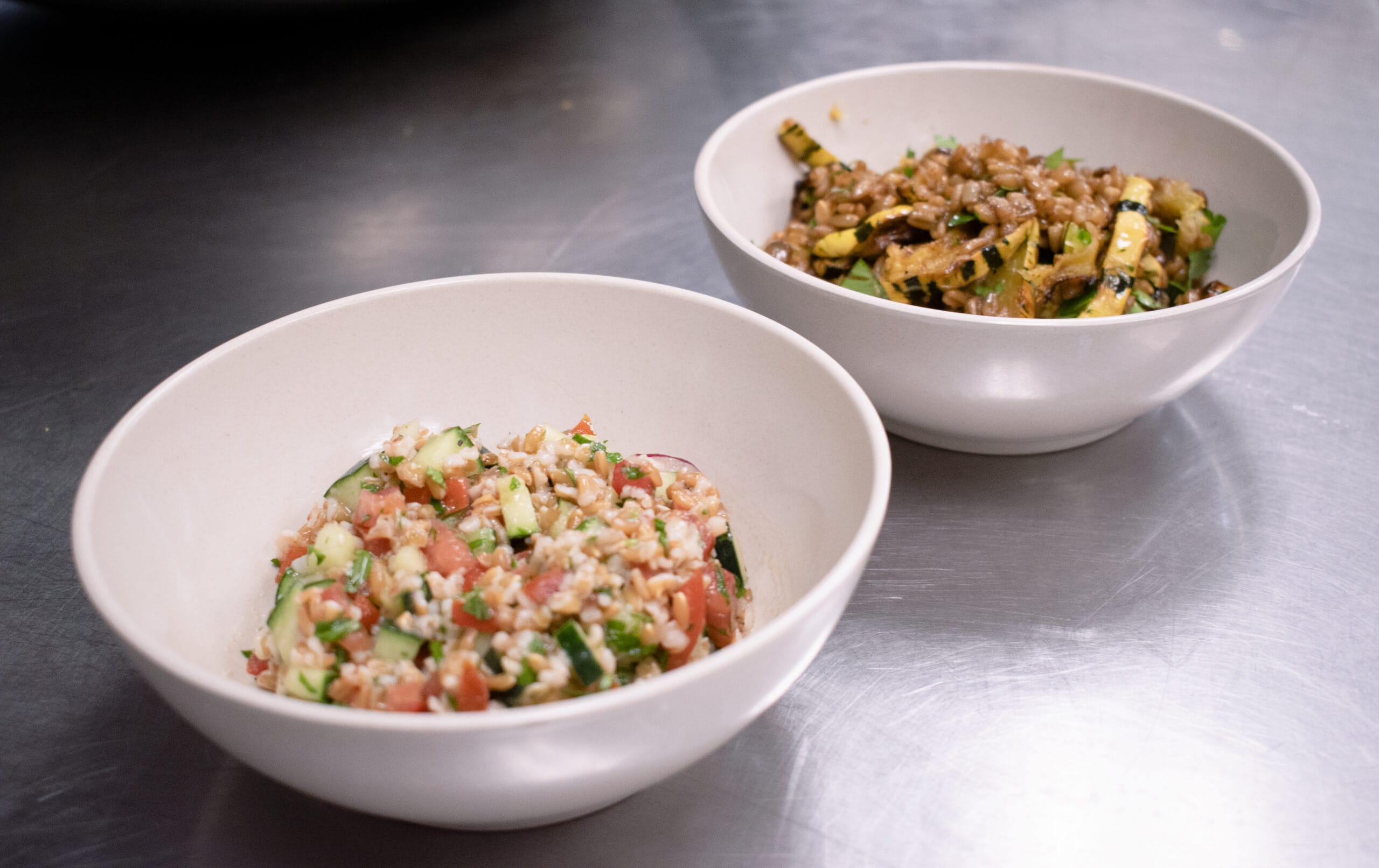 But beyond that, the Astoria Co-op also invested in doing good. And it’s dedicated to its local community of growers and makers: doing good, supporting local producers. Co-op General Manager Matt Stanley says, “Our mission is to build community through food.” And this focus on communities first–communities of owner-members, communities of shoppers, of growers and makers, of area residents–is what drives the Astoria Co-op to maintain its exacting standards for products. High quality products support high quality community engagement.
But beyond that, the Astoria Co-op also invested in doing good. And it’s dedicated to its local community of growers and makers: doing good, supporting local producers. Co-op General Manager Matt Stanley says, “Our mission is to build community through food.” And this focus on communities first–communities of owner-members, communities of shoppers, of growers and makers, of area residents–is what drives the Astoria Co-op to maintain its exacting standards for products. High quality products support high quality community engagement.
Andy Catalano, the Prepared Foods Manager at the Astoria Co-op, is humble about his role in the tasty offerings that go out of the deli. “We have built a remarkable team in the deli of competent, kind professionals over the last two years,” he says, “so essentially what I do is flutter around the kitchen and get in the way.” But Catalano is no food novice. He started cooking on organic farms while living in Italy and working through the WWOOF (Worldwide Opportunities on Organic Farms) program. That experience, he says, gave him an “entry point” to cooking: “the origin of the ingredient.”
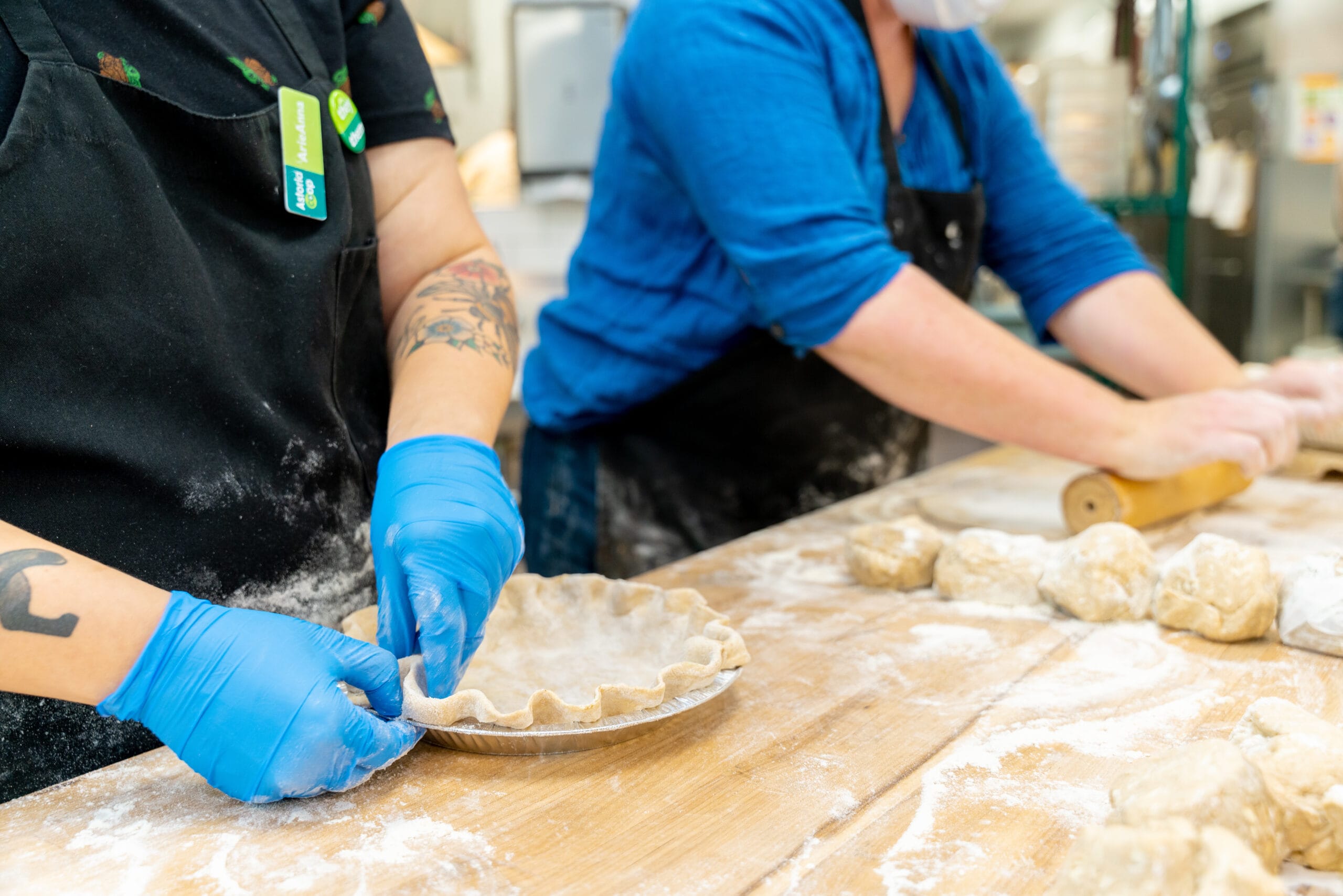 Catalano also has experience in fine dining and local, “hyper-seasonal” cuisine (“farm-to-table before it was a thing,” he says). Although the volume of food that passes through the Co-op, as well as the “price ceiling,” present unique challenges that he didn’t encounter in his fine dining positions, he carries the local, seasonal ethos in his current role.
Catalano also has experience in fine dining and local, “hyper-seasonal” cuisine (“farm-to-table before it was a thing,” he says). Although the volume of food that passes through the Co-op, as well as the “price ceiling,” present unique challenges that he didn’t encounter in his fine dining positions, he carries the local, seasonal ethos in his current role.
“We do the best we can,” he says. “And I certainly feel very fortunate to be able to offer Bluebird Grain Farm products here. Ever since I moved to the Pacific Northwest I have been using [Bluebird’s products] and early on fell in love with them. I’ve baked and sold sourdough rustic loaves and really enjoyed using Bluebird’s organic flours and grains for them.”
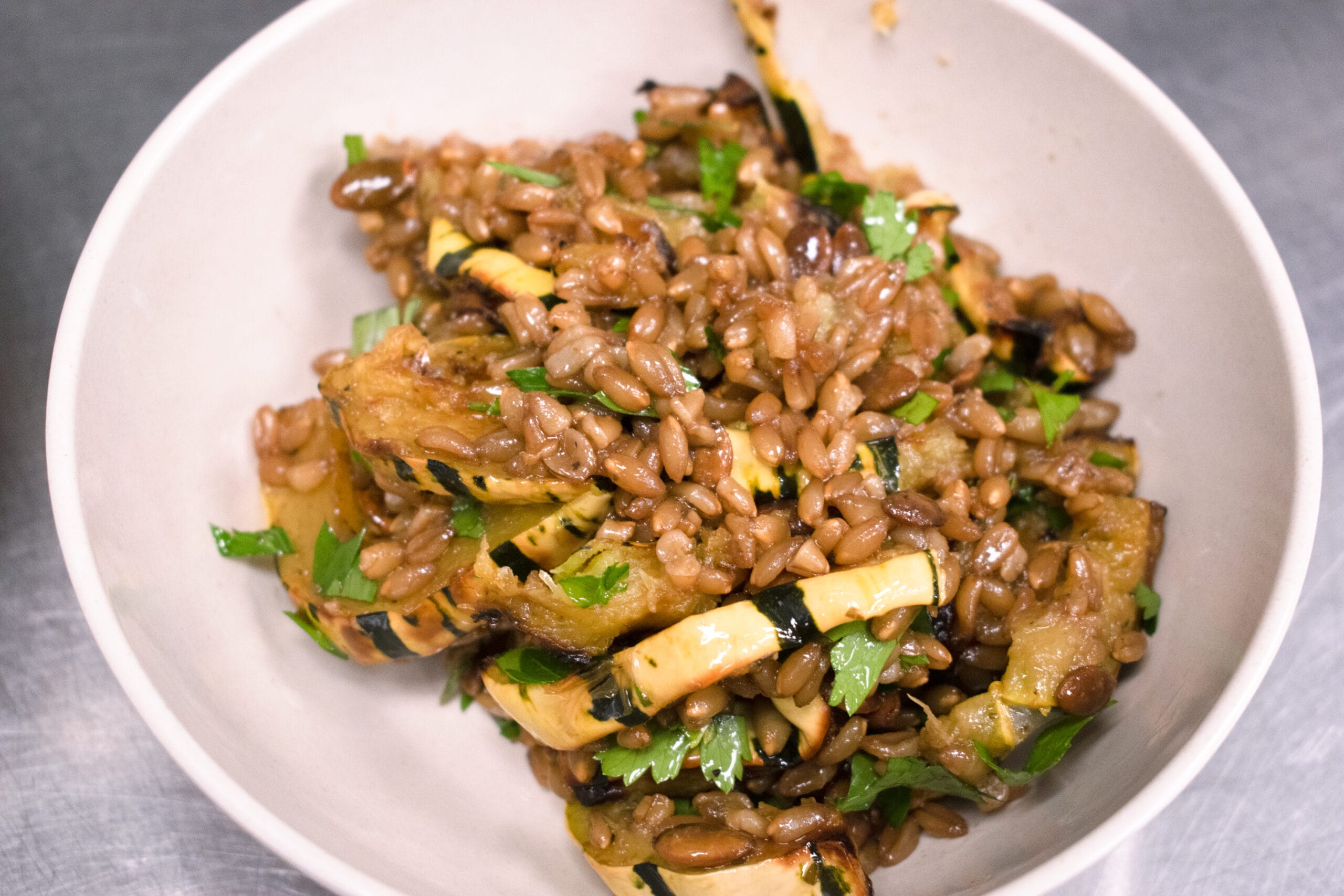 Catalano also favors Bluebird’s Emmer-Farro–perhaps stemming from his experience in Italy, as farro is a quintessential grain in Italian cuisine. “We use the split farro in our summer tabbouleh, and the whole grain farro in our fall/winter farro dish.”
Catalano also favors Bluebird’s Emmer-Farro–perhaps stemming from his experience in Italy, as farro is a quintessential grain in Italian cuisine. “We use the split farro in our summer tabbouleh, and the whole grain farro in our fall/winter farro dish.”
Shannon O’Donnell, Lead Baker at the Astoria Co-op, says that Catalano is instrumental in setting the tone for Astoria Co-op’s quality standards. “I feel very lucky to work with a chef who believes in the value of origin of a product.”
O’Donnell started baking at an early age with her grandmother Veronica, a legendary baker in the family. “One of the highlights of my childhood was visiting her and seeing her open the freezer where she kept stacks of tins full of her favorite cookies, including a very memorable key lime shortbread. She also made a soda bread every year that was her mother’s recipe.”
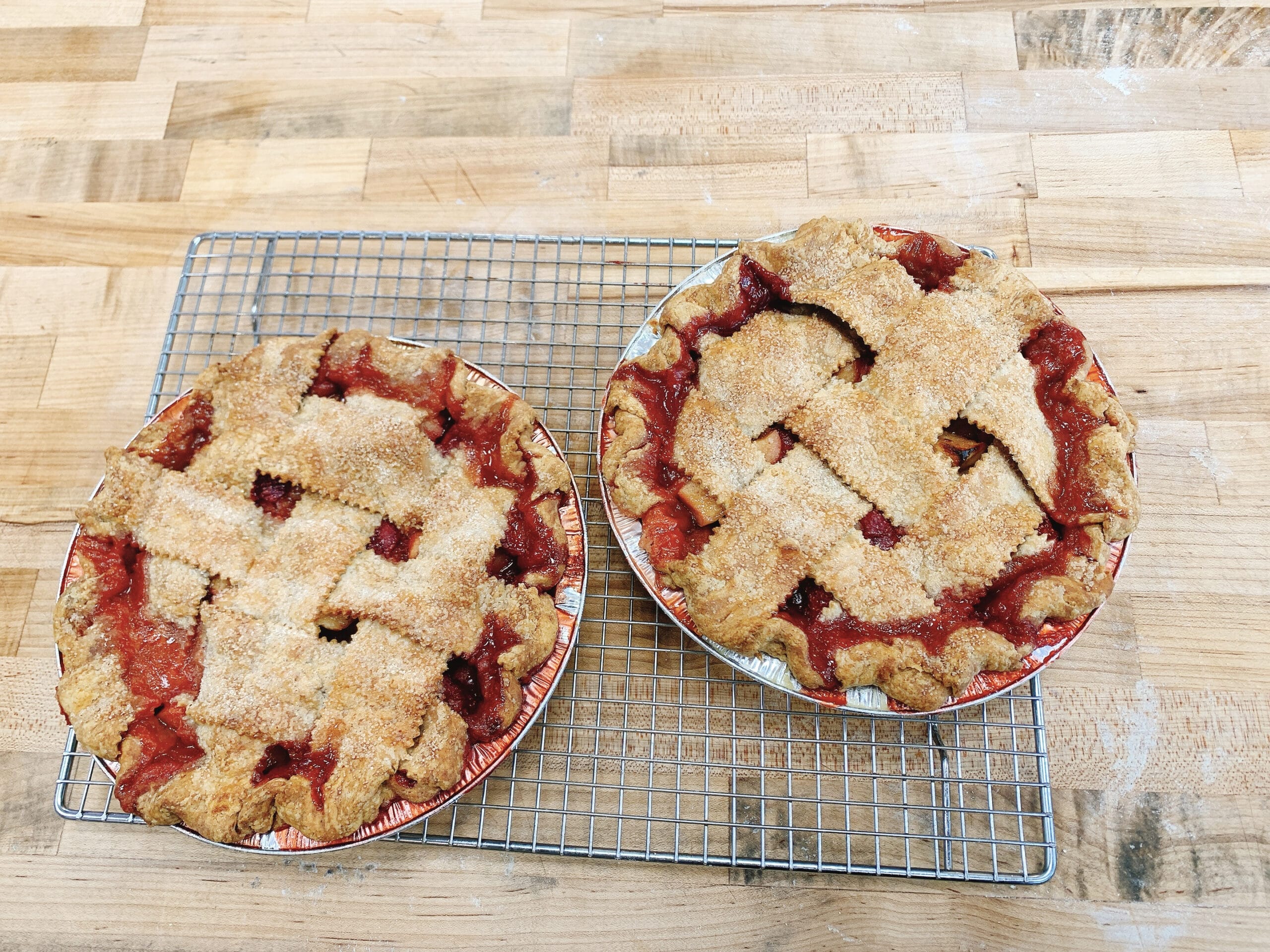 O’Donnell started pursuing an education as a wildlife tracker and naturalist in Washington State, but in her second summer at school she was hired to cook for the school’s wildlife tracking expeditions in Idaho. ” It was a steep learning curve to go from cooking the occasional big dinner for friends, to knowing how to stock a fairly primitive back country kitchen!” she says.
O’Donnell started pursuing an education as a wildlife tracker and naturalist in Washington State, but in her second summer at school she was hired to cook for the school’s wildlife tracking expeditions in Idaho. ” It was a steep learning curve to go from cooking the occasional big dinner for friends, to knowing how to stock a fairly primitive back country kitchen!” she says.
O’Donnell’s task at the Co-op is to “use seasonal ingredients, especially various fruits, in [the co-op’s] baked goods and coming up with different ways to use them.” Her navigation of these culinary challenges is informed by the food philosophies of Michael Pollan (The Omnivore’s Dilemma) and Barbara Kingsolver (Animal Vegetable Miracle). “I took it to heart that as a cook it was my responsibility to know where the food I served came from. And when stocking up for trips, my habit evolved to visit the town farmers market first. Local farmers soon realized I needed a bargain to make my budget work, and that I didn’t shy away from less than perfect produce as long as it was local and not sprayed or treated.”
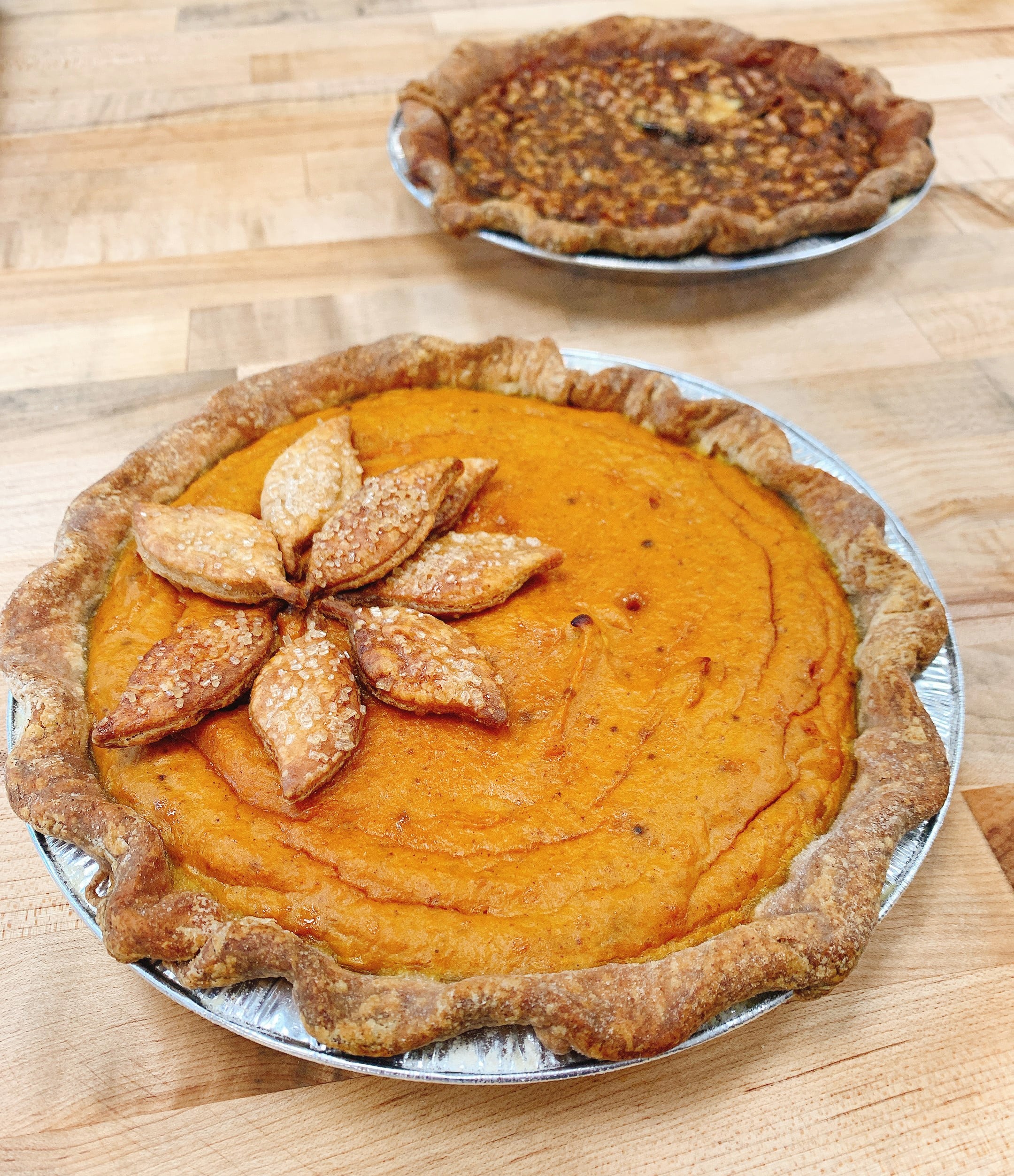 After expedition cooking for some years, O’Donnell says she realized she wanted to devote herself fully to cooking. So she enrolled in a year of cooking classes in Seattle. At the Ballard Farmers Market, O’Donnell learned about Bluebird Grain Farms. “It was my first experience of emmer farro, and fresh milled flour in general!’ she says. “Now, I’m at the Co-op and we use the beautiful Bluebird Organic Einkorn Flour in our pie crust recipe, our puff pastry, and in our blueberry muffins.” The Einkorn flour, with its high protein and simple gluten structure, is also used in the Co-op’s cookie doughs and cake batters.
After expedition cooking for some years, O’Donnell says she realized she wanted to devote herself fully to cooking. So she enrolled in a year of cooking classes in Seattle. At the Ballard Farmers Market, O’Donnell learned about Bluebird Grain Farms. “It was my first experience of emmer farro, and fresh milled flour in general!’ she says. “Now, I’m at the Co-op and we use the beautiful Bluebird Organic Einkorn Flour in our pie crust recipe, our puff pastry, and in our blueberry muffins.” The Einkorn flour, with its high protein and simple gluten structure, is also used in the Co-op’s cookie doughs and cake batters.
The COVID pandemic has changed the grocery landscape, Catalano acknowledges. “We have certainly had to pivot, repeatedly, during the last year and a half. We have gone through a phase of comfort foods and sweets being extremely in demand (early pandemic), to meal solutions – larger portions, easy-to-heat – being the most popular choice. We’ve seen customers be ready to come back to self-service food as we’ve rolled out the programs that we closed down early on,” he says. “But still, it is day by day, week by week, as we continue to go through uncharted territory.”
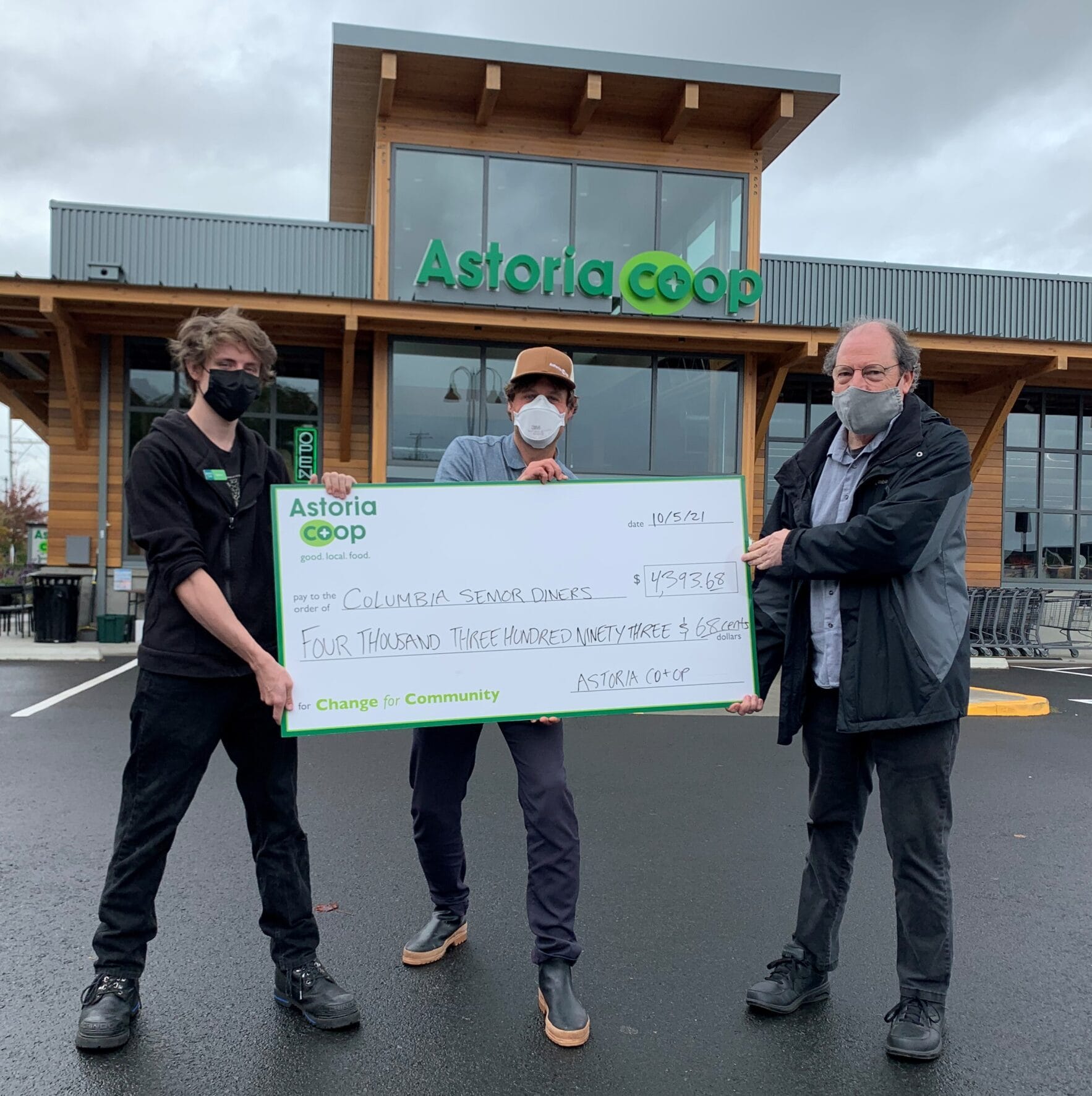 But one thing remains consistent: the Astoria Co-op’s commitment to community. Megan Ott, the Co-op’s Customer Experience Manager, describes the Co-op’s Change for Community program as “staff-driven,” saying, “We choose the recipients and inform the public about the organizations. We choose candidates who not only mean something to us, but that we think will mean something to the community.”
But one thing remains consistent: the Astoria Co-op’s commitment to community. Megan Ott, the Co-op’s Customer Experience Manager, describes the Co-op’s Change for Community program as “staff-driven,” saying, “We choose the recipients and inform the public about the organizations. We choose candidates who not only mean something to us, but that we think will mean something to the community.”
The Astoria Co-op has raised and given away more than $100,000 to local non-profit organizations, whose focal points represent a broad range, from the environment, to seniors and youth, to animal welfare, to the arts, to food equity, to climate change, to social services. It goes right back to the Co-op’s core principles: good local food doing good locally.
